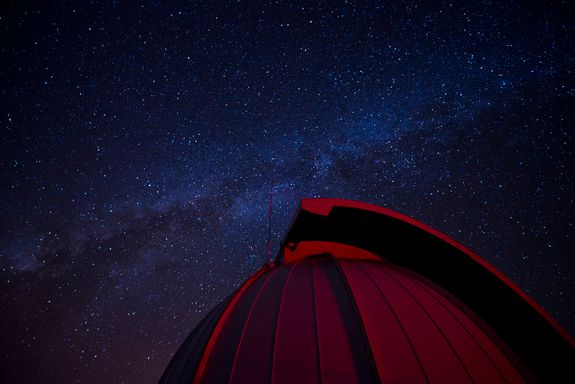Some people claim to appreciate creation, but they don't seem to grasp just how vast the universe is.
Our awesome sun, the local star, is about as large as 1.3 million Earths. There are about 300 billion stars in our galaxy, the Milky Way. There are at least one hundred billion galaxies in the observable universe.
Is it likely that amidst all of this, we are the only sapient beings to have ever graced the universe? Isn't it simply cosmic arrogance to assume that there's one creator who made all of this just for us? That this creator babysits us and personally tends to our every need? And that he has an enemy, an antithesis, who attacks us personally?
I think that's a laugh.
I think that's a laugh.
That is not to say that secular thought escapes this problem. Since the Enlightenment, secularism is still plagued with the idea that humanity is the pinnacle of all life, which has partly resulted in our modern psychology of extreme socioeconomic (and sociopathic) narcissism.
How I wish I lived a thousand or a few thousand years from now, when we have finally learned that such thinking is folly—when we have discovered greater secrets of the universe that allows us to grasp, once and for all, that it is false. That spirit of discovery, the willingness to learn things that are beyond the scope of our everyday lives, would seem to be both the proper spiritual and scientific attitude.
Is that even conceivable to those for whom the End is always nigh? To even speak of a thousand years from now in front of some would appear to be heresy. As heliocentrism perhaps was a long time ago in an age far, far away.

